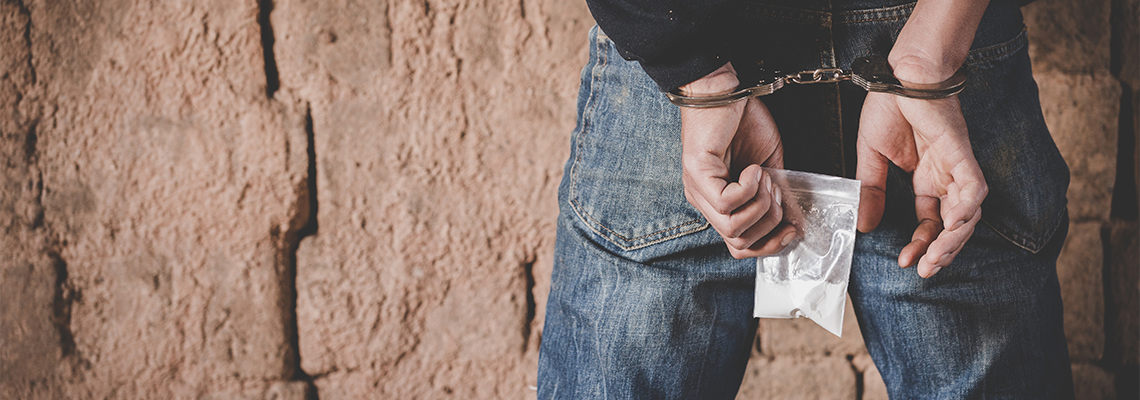Many temptations can affect the good judgment of youths in Texas. Drug use, bad peer influences, a tough home environment and many other factors can cause teens to make mistakes. Those mistakes, however, generally should not have lifetime consequences. The juvenile justice system in Texas recognizes this, which is why Texas places an emphasis on rehabilitation, rather than punishment, for youths. Still, for teens who find themselves on the wrong side of the law, even a relatively minor charge can have lasting effects.
According to the most recent data provided by the Texas Juvenile Justice Department, the number of new admissions into the juvenile system has decreased in recent years. However, those youths who have entered the system have shown an increased risk of specialized treatment needs, prior violent behavior, and are at an increased risk of dropping out of school. National data has shown that young people who have been involved in the criminal justice system at a young age are more likely to commit another crime in the future, fail to obtain an education, and have lower income potential throughout their lives.
For juveniles, there is much more at stake when arrested and charged with breaking the law than jail time or fines; there is the potential for lasting consequences from which a youth may not ever recover.
Who Is a Juvenile?
In Texas, children who are between the ages of 10 and 17 have their case heard before a juvenile court judge. Juveniles have separate courts, separate detention facilities, and are adjudicated by a judge and sentenced because of delinquent conduct, not found guilty of a crime. Delinquent conduct is any act that breaks the law that does not involve a traffic offense. Juvenile offenders have sealed records, meaning that the public does not have access to juvenile criminal files. However, a school district superintendent and school principal will be notified of a student’s arrest.
For serious crimes, such as felony crimes involving violence, a juvenile can be charged as an adult. Whether or not to try a juvenile as an adult is at the discretion of the prosecution in the case. Every county has a juvenile prosecuting attorney, who is either an assistant district attorney or an assistant county attorney.
Potential Sentencing
Youths who are convicted of delinquent conduct face a variety of potential consequences, depending on previous criminal history, the severity of the crime, and other factors. The First Offender program, for example, may include a sentence of community service, counseling, and restitution to the victim, without the youth ever needing to be adjudicated before a judge or jury. A juvenile can also receive deferred prosecution, which is an alternative to formal adjudication and is essentially a period of probation that lasts approximately six months.
A child also has the option to plea “true” or “not true” to delinquent conduct. If the child pleads true to delinquent conduct or is found to have broken the law by a judge or jury, a separate sentencing hearing will occur. The sentence may include probation, community service, restitution and time in a juvenile detention center.
Experienced Representation Can Help
The juvenile justice system is different for a reason – everyone wants to see a child succeed in life. Unfortunately, however, there is still a lot at stake for a child, even for misdemeanor offenses. Protecting a child’s rights throughout the process is vitally important to protect that child’s future.
For experienced representation and help throughout the legal process, contact the experienced criminal defense attorneys at McDougal Law Firm.
Many temptations can affect the good judgment of youths in Texas. Drug use, bad peer influences, a tough home environment and many other factors can cause teens to make mistakes. Those mistakes, however, generally should not have lifetime consequences. The juvenile justice system in Texas recognizes this, which is why Texas places an emphasis on rehabilitation, rather than punishment, for youths. Still, for teens who find themselves on the wrong side of the law, even a relatively minor charge can have lasting effects.
According to the most recent data provided by the Texas Juvenile Justice Department, the number of new admissions into the juvenile system has decreased in recent years. However, those youths who have entered the system have shown an increased risk of specialized treatment needs, prior violent behavior, and are at an increased risk of dropping out of school. National data has shown that young people who have been involved in the criminal justice system at a young age are more likely to commit another crime in the future, fail to obtain an education, and have lower income potential throughout their lives.
For juveniles, there is much more at stake when arrested and charged with breaking the law than jail time or fines; there is the potential for lasting consequences from which a youth may not ever recover.
Who Is a Juvenile?
In Texas, children who are between the ages of 10 and 17 have their case heard before a juvenile court judge. Juveniles have separate courts, separate detention facilities, and are adjudicated by a judge and sentenced because of delinquent conduct, not found guilty of a crime. Delinquent conduct is any act that breaks the law that does not involve a traffic offense. Juvenile offenders have sealed records, meaning that the public does not have access to juvenile criminal files. However, a school district superintendent and school principal will be notified of a student’s arrest.
For serious crimes, such as felony crimes involving violence, a juvenile can be charged as an adult. Whether or not to try a juvenile as an adult is at the discretion of the prosecution in the case. Every county has a juvenile prosecuting attorney, who is either an assistant district attorney or an assistant county attorney.
Potential Sentencing
Youths who are convicted of delinquent conduct face a variety of potential consequences, depending on previous criminal history, the severity of the crime, and other factors. The First Offender program, for example, may include a sentence of community service, counseling, and restitution to the victim, without the youth ever needing to be adjudicated before a judge or jury. A juvenile can also receive deferred prosecution, which is an alternative to formal adjudication and is essentially a period of probation that lasts approximately six months.
A child also has the option to plea “true” or “not true” to delinquent conduct. If the child pleads true to delinquent conduct or is found to have broken the law by a judge or jury, a separate sentencing hearing will occur. The sentence may include probation, community service, restitution and time in a juvenile detention center.
Experienced Representation Can Help
The juvenile justice system is different for a reason – everyone wants to see a child succeed in life. Unfortunately, however, there is still a lot at stake for a child, even for misdemeanor offenses. Protecting a child’s rights throughout the process is vitally important to protect that child’s future.
For experienced representation and help throughout the legal process, contact the experienced criminal defense attorneys at McDougal Law Firm.



